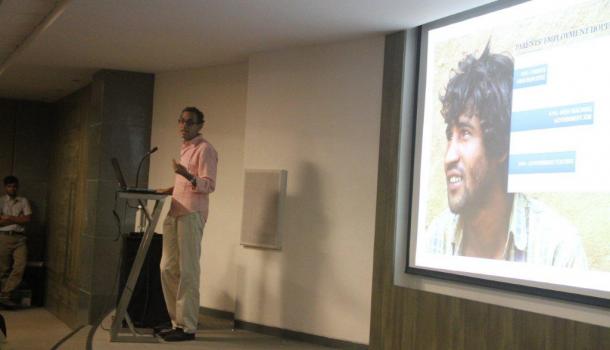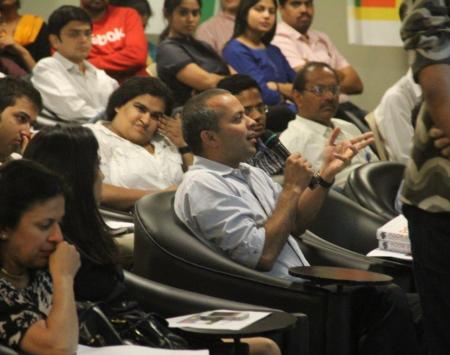In 2003 he co-founded the Abdul Latif Jameel Poverty Action Lab (J-PAL) at MIT. Dr. Banerjee is a past president of the Bureau for the Research in the Economic Analysis of Development, a Research Associate of the NBER, a CEPR research fellow, International Research Fellow of the Kiel Institute, a fellow of the American Academy of Arts and Sciences and the Econometric Society and has been a Guggenheim Fellow and an Alfred P. Sloan Fellow. J-PAL received the inaugural BBVA Frontiers of
Knowledge Award for world-class research, and Professor Banerjee received the Infosys Prize 2009 in Social Sciences and Economics. In 2011, he was named one of Foreign Policy magazine's top 100 global thinkers and in 2012 he was named by The Financial Times as one of 25 Indians to watch out for. Dr. Banerjee is the author of a large number of articles and three books, including Poor Economics which won the Goldman Sachs 2011 Business Book of the Year. In his talk at Godrej Dr Banerjee explored the concepts of his award winning book Poor Economics.
In Poor Economics, Abhijit and his co-author Esther Duflo pose simple questions like: Why would a man in Morocco who doesn’t have enough to eat buy a television? Why is it so hard for children in poor areas to learn, even when they attend school? Does having lots of children actually make you poorer? Their book is radical in its rethinking of the economics of poverty, but also entirely practical in the suggestions it offers. Through a careful analysis of a very rich body of evidence, including the hundreds of randomized control trials that J-PAL has pioneered, the book shows why the poor, despite having the same desires and abilities as anyone else, end up with entirely different lives. According to Dr. Banerjee, the battle against poverty can be won, but it will take patience, careful thinking and a willingness to learn from evidence.




